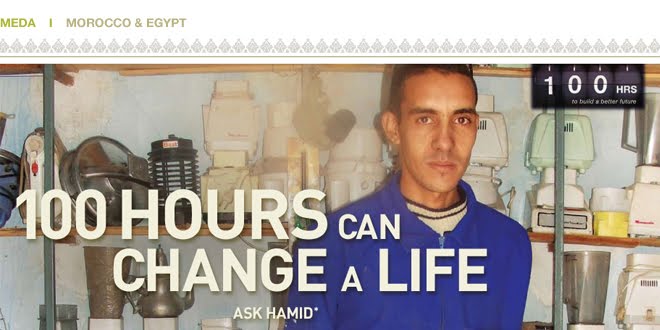
This week, Jennifer Harley of MEDA's financial services area reflects on her recent experiences traveling in Morocco.
Every meal in Morocco is a delight for the senses. It is a pleasure to enjoy the spread of eclectic cultural influences: couscous from the Berbers, the Moorish mix of nuts, fruits and meats, and the unmistakable oils of the Mediterranean coast and the Arabic peninsula.
The markets in Casablanca are teeming with delectable treasures from all corners of the country and the scent of cinnamon and cumin is seemingly in the air no matter where you go. There’s also something very exotic about stalls filled with spices, both ground and whole, and about the sight of large jars of saffron worth more, per ounce, than gold.
During my visit, though, I discovered that food in Morocco is not only delicious, but also fun to eat. Lunch is the biggest meal of the day in Morocco, a time for families to be together away from the heat and strong mid-day sunshine.
Dining is always communal, and in many small cities and towns, no cutlery is offered. Most of the time, I used my hands and the fresh crusty white bread to dip into the large bowl of spiced stew in the middle of the table. The bread also acts as a vehicle for the homemade olives and cold beet salads.
Customarily, guests in a Moroccan home are offered far more food than they can possibly eat as a show of hospitality, which can be a little overwhelming at first – but luckily, most homes have dining rooms complete with well-cushioned benches, just in case you doze off satiated.



